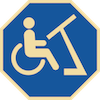
Beyoncé ADA Lawsuit
“The Americans With Disabilities Act is spurring digital-age lawsuits claiming that company websites are places of public accommodation, and must be accessible to people with vision issues, hearing impairments, and physical disabilities.
In January 2019, Beyoncé Knowles’ company, Parkwood Entertainment, became the defendant in a class-action lawsuit alleging that it violated the Americans with Disabilities Act (ADA). The suit, filed by a blind woman from New York, claimed that the company’s website, Beyonce.com, did not provide accommodation for people with significant vision impairments, leaving an estimated 2 million blind people and others with vision impairments unable to access the primary portal for news about all things Bey.
Parkwood is far from alone. The ADA has been law for decades—it turns 30 in 2020—but it’s spurring a new wave of digital-era lawsuits. The civil rights law applies to businesses with 15 or more employees, including state and local governments, and also applies to places of public accommodation. According to calculations by the Chicago-based law firm Seyfarth Shaw, the first half of 2019 saw a 12% increase in ADA Title III lawsuits filed in federal court over the same time period in 2018 (5,592 vs. 4,965). The reason: Digital assets, primarily websites that are meant to serve the public, don’t always offer accessibility features for people with disabilities.” – Gwen Moran, for FORTUNE
For more information on ADA website compliance, see this article by Gwen Moran on FORTUNE.
